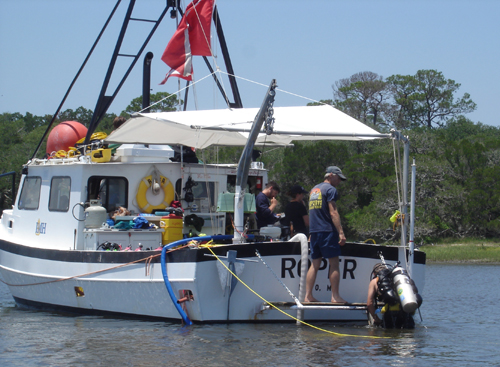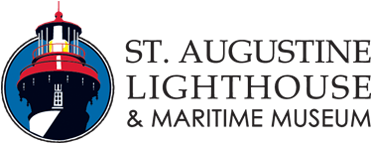
A great story on our 2012 Field School ran in the Beaches Leader, a local paper for the Jacksonville Beaches, back on July 24 (in case you are wondering why all of these blog postings are suddenly appearing, our field season has come to a close so we are catching up with all the news we couldn’t report while out diving on the boat!)
From the Beaches Leader:
LAMP’s annual summer field school brought 17 college students from across the country to learn archaeology by working on the late 18th century “Storm Wreck.” During the month of June, LAMP continued excavations on this wreck in an attempt to better understand the nature and extent of the shipwreck site, and the date, nationality, and function of the vessel it represents. Archaeology staff and students primarily worked from the research vessel Roper, a former shrimp trawler which is on loan to LAMP from the Institute of Maritime History in the Chesapeake region. This month, LAMP will continue field work but will focus on testing magnetic targets identified through previous years’ survey, in hopes of discovering one or more new shipwreck sites in the vicinity of the historic inlet.
Students were instructed in scientific diving procedures, archaeological recording and excavation, the use of hydraulic probes and induction dredges, marine remote sensing survey and analysis (magnetometer & side scan sonar), artifact collection and documentation and basic conservation laboratory methodology. The field school also hosted an evening lecture series with field school instructors and visiting professionals from various public, private and academic institutions throughout Florida.
A field school is an irreplaceable component in the education of any student pursuing a career in archaeology. Each June, LAMP oversees an intense four-week, accredited educational program, allowing both undergraduate and graduate students the opportunity to participate in a marine survey and underwater excavation of a historic shipwreck site. In addition to methodological training and academic lectures, students get valuable real-world experience in all aspects of archaeological fieldwork, scientific diving and seamanship and laboratory analysis. LAMP has partnered with a variety of universities, including Flinders University, Florida State University, Syracuse University and Plymouth State University, to organize and implement this four-credit course.

